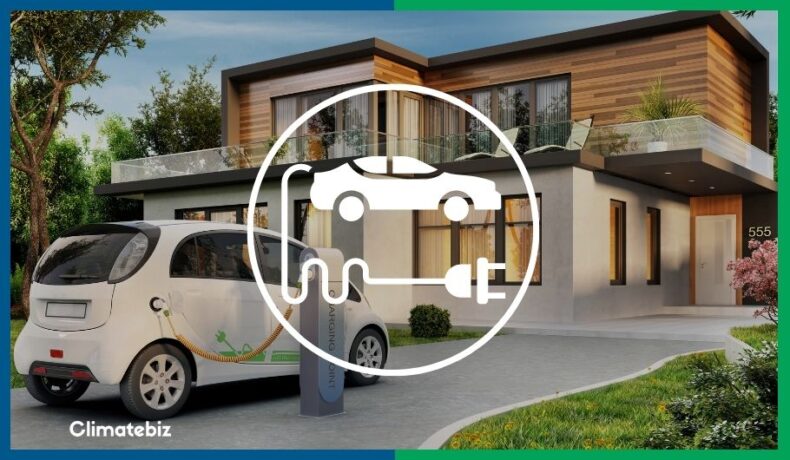kWh per km or mile is an efficiency metric that EV owners tend to obsess about FAR too much. We’re here to let you know that this efficiency metric should only be a primary concern prior to purchasing an EV. You’ll find out why in this article.
The most popular EVs have an efficiency of 0.15 to 0.20 kWh per km. This translates to 0.25 to 0.33 kWh per mile. From a practical standpoint, these numbers mean that owning an EV will give you more Miles per Gallon equivalent (MPGe) than conventional fossil-fuel vehicles.
Table of Contents
EVs are More Efficient Than Conventional Cars
If you look at the math, it indicates that going with EVs will lead to more savings in the long run.
Numerous studies have already confirmed that Electric Vehicles (EV) are more efficient than traditional Internal Combustion Engine Vehicles (ICEV). According to the Energy Efficiency and Renewable Energy Office of the U.S. Department of Energy, EVs convert over 77% of the electrical energy from the grid to power at the wheels ( if regenerative braking is considered).
ICEVs, on the other hand, only have an efficiency of between 12%–30%.
Why A 100% Renewable Energy Power Sector Matters
What about environmental friendliness?
While the U.S. energy mix still relies heavily on petroleum for electricity production, we see a trend in recent years where annual crude oil production decreases while natural gas utilization increases.
Recall that the U.S. is now back to keeping its promise of achieving net-zero emissions by 2050 and a net-zero power sector by 2035.
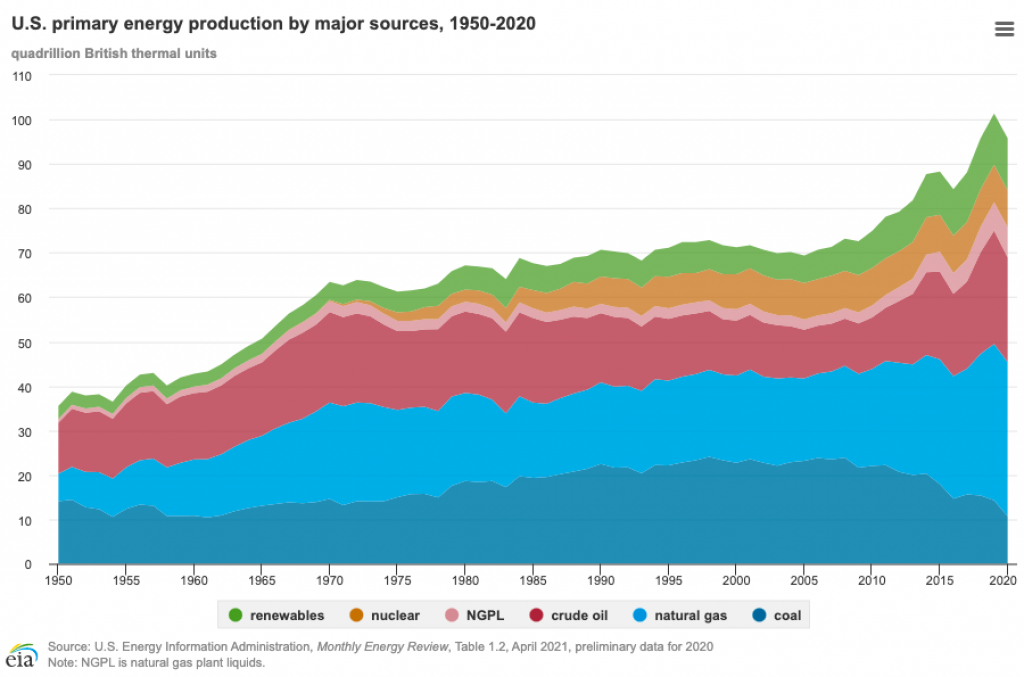
Source. EIA.com
Why the rise of natural gas in the energy mix? This is another story, but the main point you should be aware of is that natural gas plays a significant role in the energy transition from fossil fuels to renewable energy. We bet that green energy professionals reading this statement are probably nodding their heads in unison.
So what has the U.S. energy mix got to do with EVs and efficiency?
For one, the primary driver for shifting from ICEVs to electric cars is the decarbonization of the transport sector. Mentioning that the electricity in the U.S. will come from 100% renewable energy is vital for EVs to become truly environment-friendly.
There is no point in switching to electric vehicles if the electricity source is still from dirty coal plants, right?
Okay, back to the main topic on EV kWh per km efficiency.
Before proceeding further, you should understand the difference between kWh and kW. We’ve made a water hose analogy about it, and we think it’s worth your time.
How Much kWh Does An Electric Car Use Per Km?
Among the most popular U.S. EVs, we found that the typical kWh per mile falls between 0.25 to 0.33 kWh per mile. In the metric system, this is 0.15 to 0.20 kWh per km.
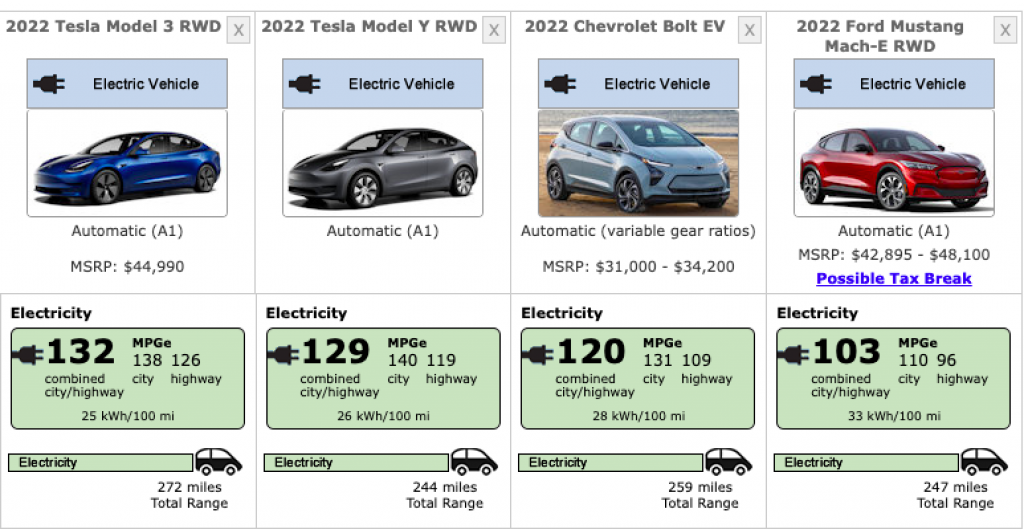
Source: FuelEconomy.gov
One of the main drawbacks of owning an EV compared to ICEVs is the driving range. Admittedly, EVs have a shorter driving range than ICEVs, so you have to plan your trips and charging times more carefully if you own the former. It’s also why people pay attention to the number of kWh an EV uses per km.
So how do we use kWh per km in a more practical sense? For one, EV experts consider kWh/km a measure of EV efficiency. Specifically, kWh/km estimates an EV battery’s remaining range.
“How?”
Let’s look at another variable, then let’s piece everything together.
EV battery capacities are usually expressed in kWh units. Dividing this value by an electric car’s EV efficiency (kWh per km or miles) will give you a good approximation of how much distance your vehicle can go.
This expression can be summarized using this equation:
EV Range Left (km) = Remaining EV battery capacity (kWh) / EV efficiency (kWh/km)
How To Get More Mileage Per kWh?
“That is all well and good but is there a way to get more miles per kWh on my EV?”
That’s a good question — unlike gasoline cars, EVs are built to address the human errors that tend to cause lower car efficiency.
Let’s backtrack a bit to traditional gasoline cars and people’s strategies to increase fossil fuel efficiency.
Tactics To Increase Gasoline Car Efficiency
Getting the most bang out of your gasoline buck is a custom most practical people do. In fact, obsessing about a car’s efficiency led to the coined term “hypermiling.”
Hypermilers generally aim to maximize their traditional car’s efficiency, say from 12% all the way to 37%. The most common practices are:
- Reducing engine idling;
- Regular vehicle maintenance;
- Purchasing parts that will save fuel in the long run (e.g., tires); and
- Choosing just the right vehicle size for their lifestyle.
Then there’s also the driving behavior aspect which tells us to avoid hard accelerations. Recall the old hardcore hypermiler expression:
“If you had to brake, you made a mistake.”
Indeed, increasing fuel efficiency from 12% to 37% is an aspiration worthy of good driving practices. However, consider that EVs are already built with mechanisms to increase efficiency without these hypermiling tactics.
Why You Shouldn’t Worry Too Much About EV kWh Per Km
According to the U.S. Department of Energy, EVs are 60% to 73% efficient, depending upon the drive cycle. If you include energy recovered from EV regenerative braking systems, EVs are 77% to 100% efficient.
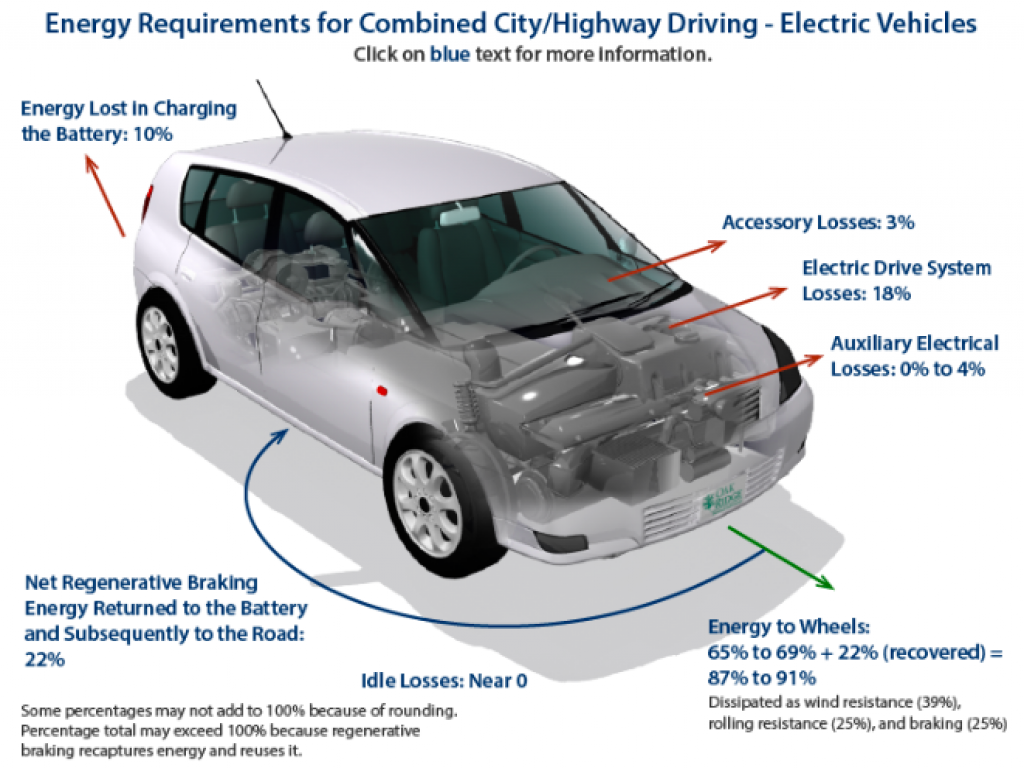
Source: FuelEconomy.gov
For us, going the extra mile (no pun intended) to increase EV efficiency from 60% to 70% might be overdoing it. Not to mention, EV electricity is much cheaper than gas if you compare them apples-to-apples using the MPGe statistic.
In conclusion, high fuel efficiency and cheaper fuel cost are the main reasons you shouldn’t obsess too much about getting more mileage per kWh than what your EV manufacturer already declared.
However, if you still insist on getting maxing out EV efficiency, here are some actionable steps you can implement today:
1. Avoid Hard Accelerations And Suboptimal High Speeds
Similar to ICEVs, hard accelerations often lead to inefficient use of electricity. Always aim to drive smoothly.
Also, keeping your speed under 60 mph (if possible) is considered the sweet spot to optimize kWh per km.
2. Don’t Abuse Your A/C
Fuel economy tests confirm that cold and hot weathers affect the efficiency of automobiles, EVs included. This is mainly due to people running their A/Cs at full blast. While we understand that air conditioning is essential for a comfy ride, try your best not to overdo it — it’ll help prolong your EV’s battery life.
3. Monitor And Maintain Tire Pressure
This tip is no stranger to hypermilers. Hands down, properly inflated tires last longer, increase fuel economy, and are safer.
Some people even take this practice to the next level and use nitrogen-filled tires to slow down the loss of tire pressure.
Which Electric Car Gets The Most Km Per kWh?
Surprisingly, the best-selling EV cars are also considered the most fuel-efficient ones.
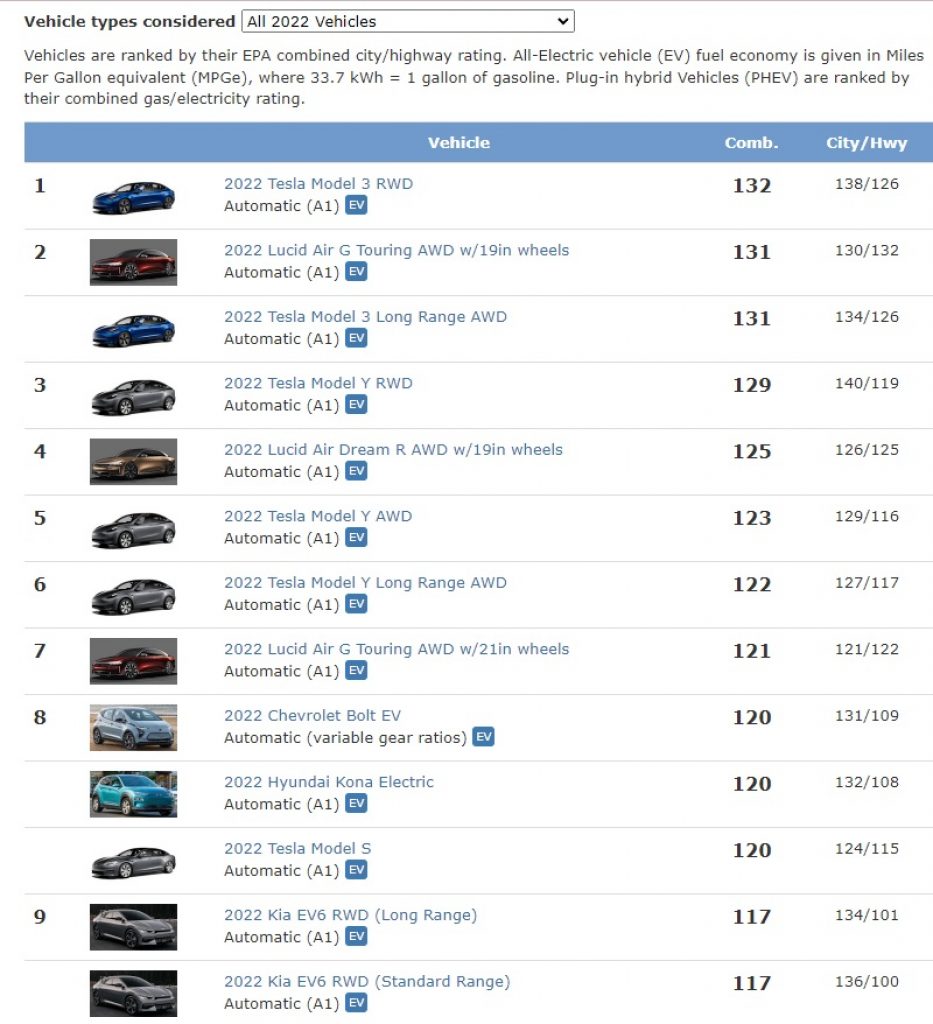
Source: FuelEconomy.gov
According to FuelEconomy.gov, the cheapest Tesla Models have the highest EV fuel economy rating along with the other popular models out there, such as:
- Lucid Air G
- Chevrolet Bolt
- Hyundai Kona Electric
- Kia EV6
Note that the figure above ranks the top ten fuel-efficient vehicles, including gas and hybrid cars. Therefore, we can conclude that EVs are undisputed in the fuel efficiency arena.
This is also why we said in the beginning that EV efficiency metrics should only be a significant consideration before your EV purchase.
Remember that EVs are relatively expensive upfront. Therefore, we recommend that you balance initial cost with fuel efficiency to optimize savings.
How Many kWh Does An EV Use Each Year?
Well, that depends on the lifestyle and driving behavior of the user, right? If we were to start from scratch, we’d suggest looking at your typical driving routines for a week.
Anyone can perform this experiment. Here’s what you need to do:
- Select a week that mimics your typical driving behavior (work, school, errands, etc.)
- Track the electricity meter of your EV home charger (kWh)
- Track the electricity meter of the public charging stations (kWh) when you charge your electric car in public.
You can input your kWh data in a spreadsheet and add up your total energy use at the end of the week. Multiply this number by 52 (number of weeks in a year), and that will give you a reasonable estimate of how much kWh you use for your EV each year.
ClimateBiz Pro Tip
You can take this experiment further and incorporate a seasonality effect to track how your EV energy usage varies per season, especially during summer and winter.
Repeat the experiment per season, then multiply it by the number of weeks each corresponding season lasts (Warning: make sure the total number of weeks should still add up to 52). Add all the subtotal kWh per season, and you should have a more accurate estimate.
We believe this method hits the middle ground between tracking your EV energy use for an entire year (brute force method) and the one-week monitoring (simple but doesn’t capture the seasonality effect).
Final Thoughts
By now, you should have a pretty good grasp of EV efficiency and how to use it as a tool to aid in your EV purchase.
Despite our view on how you should use the kWh per km metric, some of you might still prefer to implement EV hypermiling tactics to maximize EV range (or savings), and that is okay.
We understand that EV owners and potential buyers tend to be preoccupied with EV efficiency.
We think this uneasiness you feel comes from a phenomenon called “EV range anxiety,” which is the fear of being stranded along the road due lack of charging infrastructures.
EV range anxiety is a severe concern that hinders eager EV adopters from their first purchase. This is why governments are working double-time with private companies to rapidly deploy public charging stations and ease the worry of potential electric car owners.

